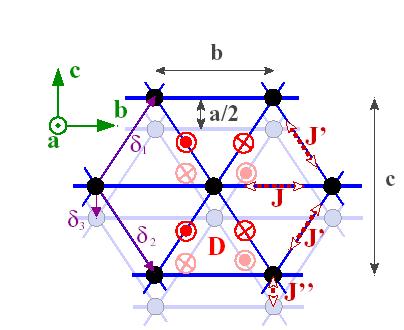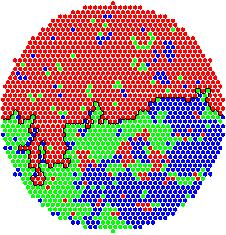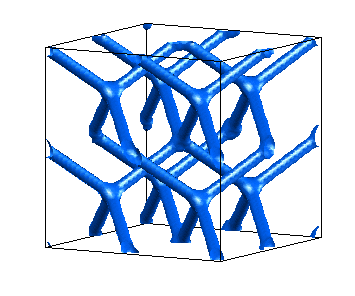

HomeAbout usAn introduction to theoretical condensed matter physicsWhere we are in the Physics departmentMembers of the groupSeminars Opportunities
|
About us:Our research covers a wide variety of different problems, which involve systems as different as polymers, electrons constrained to move in two dimensions, exotic magnets, multi-component fluids, superconductors, and even populations of infectious or economic agents. We study systems as hard to manufacture as ultraclean semiconductor `sandwiches', or as commonplace as water ice. Despite this large variety, there is a common thread to our research: we seek to understand the collective behaviour of systems which consist of large numbers of constituent elements. Such collective behaviour often turns out to be very rich and complex -- here are a few more words explaining this. Equally varied as the research topics are the methods employed to study them, which range from elaborate quantum field theories to computer-based studies, for the most intensive of which we have a dedicated computer cluster. These methods are not peculiar to condensed matter physics; rather, they provide the common language of theoretical physics, which enables us to benefit from exchanges with our colleagues in the Rudolf Peierls Centre for Theoretical Physics who work in other disciplines, such as high energy or astrophysics. We are in a good position to maintain strong links to experimental physics: the Oxford Physics Department also houses a strong experimental condensed matter group in the Clarendon Laboratory, with which we also share a common seminar series. Several members of our group collaborate directly with industrial research partners. We are also lucky to have the ISIS facility -- a neutron and muon source -- at the RAL, just south of Oxford, which attracts a good fraction of the global neutron scattering and muon spin rotation communities. At any given time our group approximately consists of 10 members of academic staff, at least one long-term fellow, 12 postdocs, and 14 graduate students, as well as a number of visitors. Our members come from many different countries, and similarly, we collaborate with other scientists -- and attend workshops, conferences or summer schools -- all over the world. The Group runs several series of seminars, some with visiting speakers and others showcasing the recent work of its own members. An important occasion each day, for the group and for the whole subdepartment, is the coffee half-hour each morning, which gives all the members of the group an opportunity for informal discussion. The group contributes to and benefits from a full programme of graduate courses run by the Theoretical Physics sub-department. These range in level from introductory courses for beginning graduate students to advanced course on the latest developments attended by postdocs and academic staff. We very much welcome interest in our group! For graduate studies and postdoctoral positions, there is an annual application round. If you need information you cannot find on these webpages, please do not hesitate to get in touch with the member of our group who interests you most. |
Recent Research |
|
|
|
|||




